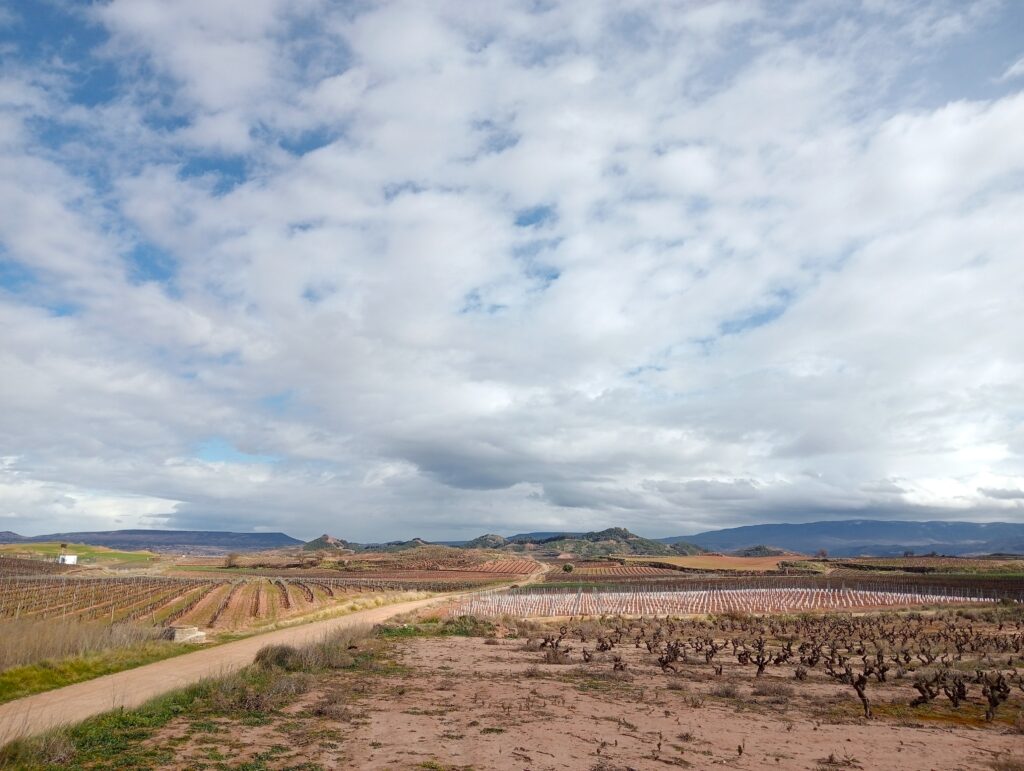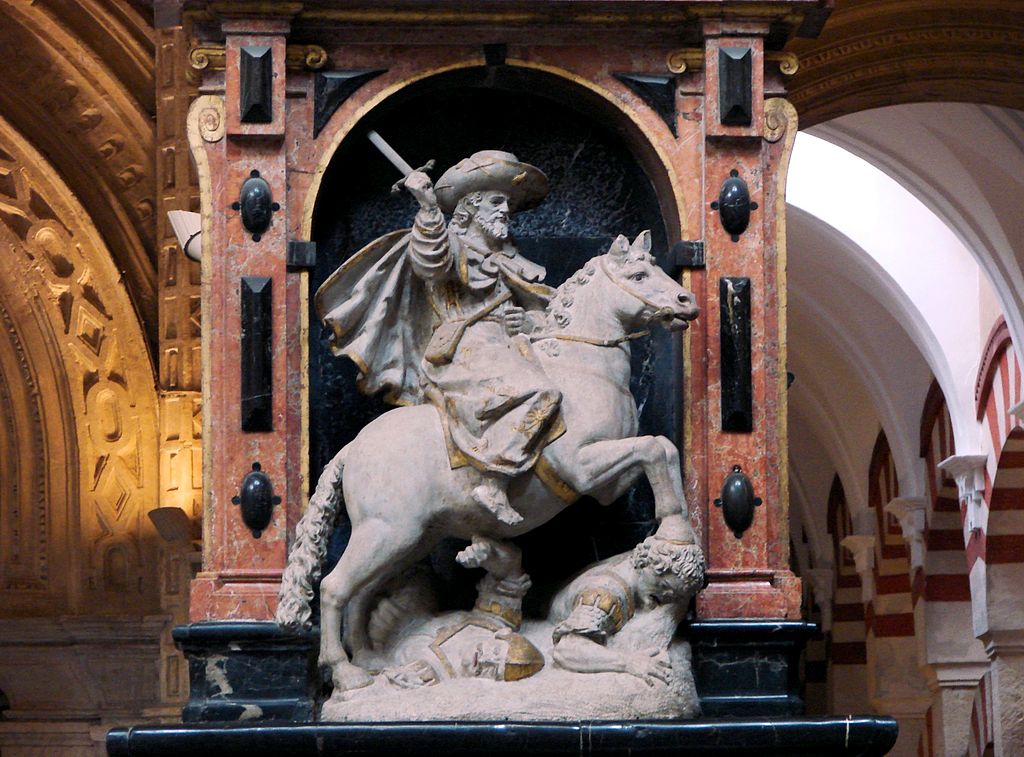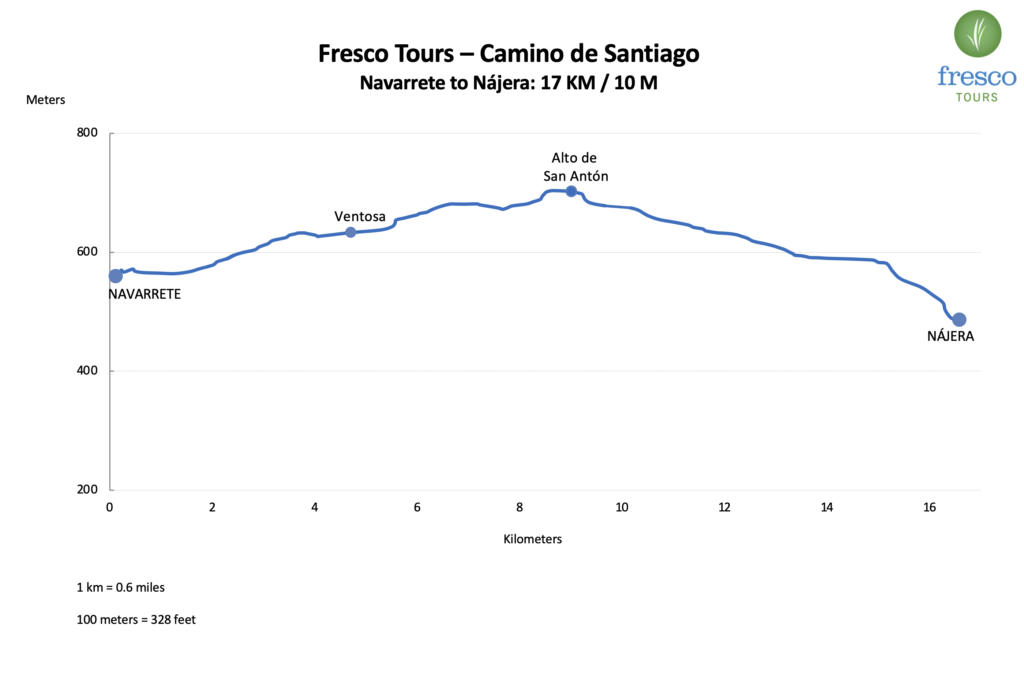Today we walk from Navarrete to Nájera, surrounded by vineyards and mountains in the distance.

La Rioja wine country
La Rioja wine country is a picturesque region renowned for its exceptional wines, stunning landscapes, and rich cultural heritage. This area is primarily known for producing high-quality Rioja wine, celebrated worldwide for its robust flavors and distinct character. Indeed, Rioja wines are without doubt Spain’s flagship wines around the world!
The landscape of La Rioja is characterized by rolling hills adorned with vineyards, dotted with charming villages and medieval towns. Visitors to the region are treated to breathtaking views of vineyard-covered slopes, especially during the fall harvest when the foliage transforms into a vibrant tapestry of colors. But don’t worry if you’re not walking Chapter 2 in the fall, the region is guaranteed beautiful year round.
La Rioja wine country is a captivating destination where wine enthusiasts and history buffs alike can immerse themselves in the beauty, flavors, and heritage of one of Spain’s most iconic wine regions. It’s also a core part of the Camino de Santiago pilgrimage and home to the Camino’s most renown legend. Pilgrims are often pleasantly surprised by the less-talked about Camino in La Rioja.

The Battle of Calvijo
Few pilgrims are aware that one of the most important Camino associated events took place in La rioja, albeit not close to the trail itself. This event was the Battle of Clavijo that allegedly occurred in 844 AD near the town of Clavijo. This small town still exists and is found about an hour south of Logroño.

According to the legend, the Christian King Ramiro I of Asturias faced the invading Muslim Moors. In the midst of battle, the Apostle Saint James, miraculously appeared riding on a white horse and wielding a sword, thus aiding the outnumbered Christians. With his intervention, the Christians claimed victory, solidifying the legend of Santiago Matamoros (Saint James the Moor-slayer). This myth became a rallying cry for Christian Spain during the Reconquista, influencing art, literature, and the veneration of Saint James as the patron saint of Spain. Historical accuracy of the battle remains debated and the image of Santiago Moor-slayer has slowly begun to decline in favor of the more amicable Santiago pilgrim image.






